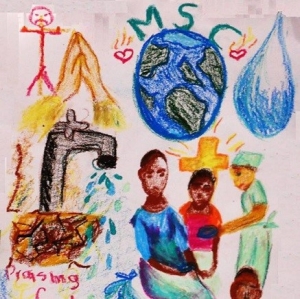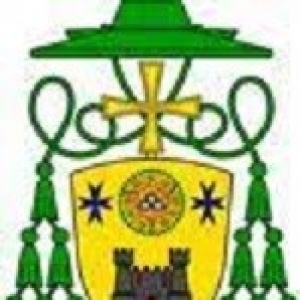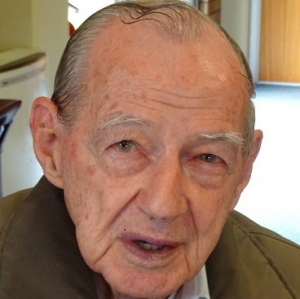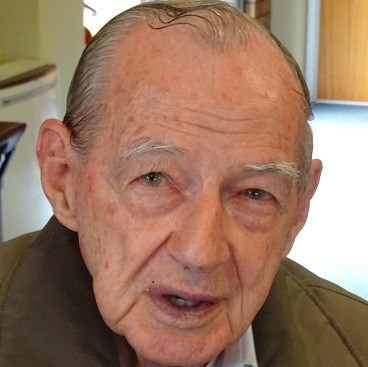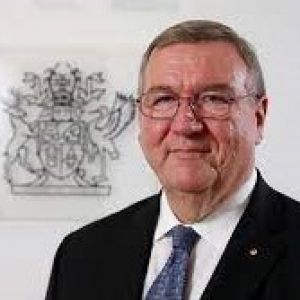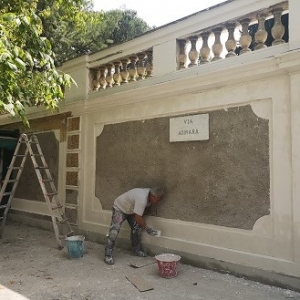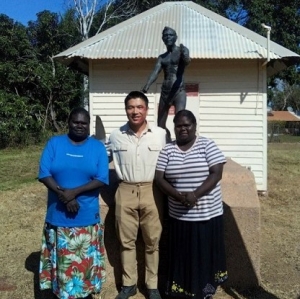Peter MALONE
MSC Mission Office Australia
MSC Mission Office Australia
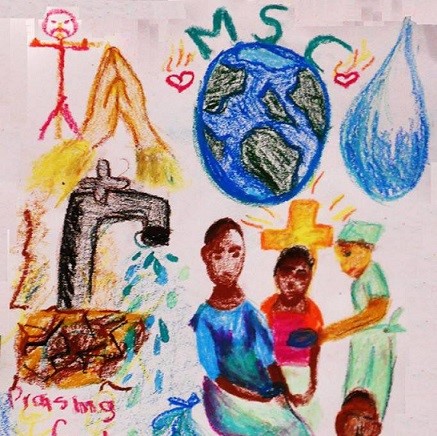
Taking the opportunity to acknowledge the Mission Office and the work of Roger Purcell MSC, Sean Donovan and the staff and all the international contacts,
Also known as “MSC Mission Office”, MSC Mission Office Australia Limited is a medium-scale charity established in 1998. Their main activity is registered as catholicism primarily serving youth - 15 to under 25 adults - aged 25 to under 65 adults - aged 65 and over people from a culturally and linguistically diverse background people in rural/regional/remote communities financially disadvantaged people females males overseas communities or charities general community in Australia.
We have coordinated with and supported our offices across the Pacific, Asia, and Africa to deliver Overseas Aid, Necessitous Circumstance (Australia), as well as non-tax deductible projects to 21 countries.
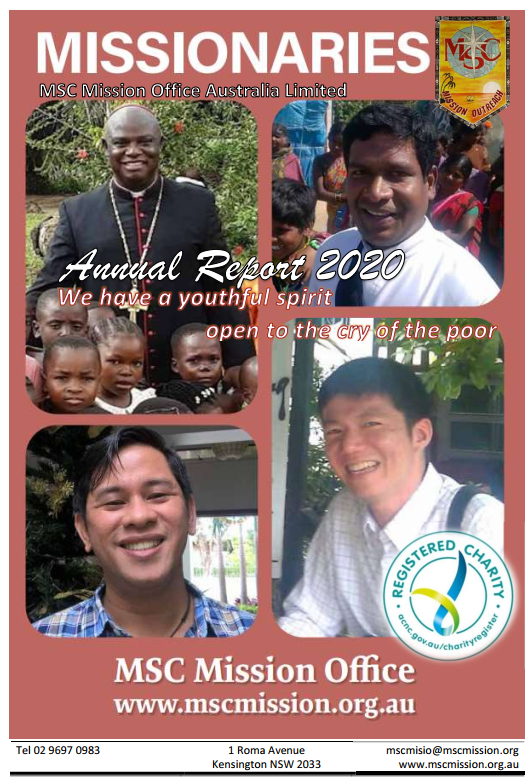
A reflection from Roger:
A culture of encounter is about meeting people, which can simply mean greeting others, socializing with a drink or a meal, meetings, conferences, assemblies of all sorts, at all levels. We meet others as daughters and sons of God, as sisters and brothers. It requires the quality of dialogue; to listen carefully and to speak truthfully, to see all as an equal, to come with mercy and compassion.
We may not be able to change the big picture, but we can change our own attitudes and outlooks. We can bring about change at our own level, and each small change builds the right values and attitudes, penetrates the structures of life creating movement in the direction God calls us.
However, all is not doom and gloom as many good things are happening with many good people working to bring about justice, equality; groups, movements, organizations, large and small, local, national and international concerned for refugees, women, children, violence, suicide, the environment and many more.

Why make a bequest?
A bequest in you will is a gift that lives on. It is a way of sharing assets that you may need now, but can spare for worthy causes when you no longer need them.
Bequests to the MSC Mission Office are an outstanding way of financing the good work done by our Missionaries.
It would be very difficult to expand the provision of services without bequests.
- provide food and accommodation for children
- support HIV-AIDS sufferers
- supply pumps, tanks and clean water for a family or a village
- build a classroom or a health clinic
- support a student for the priesthood
- support workers in the Missions
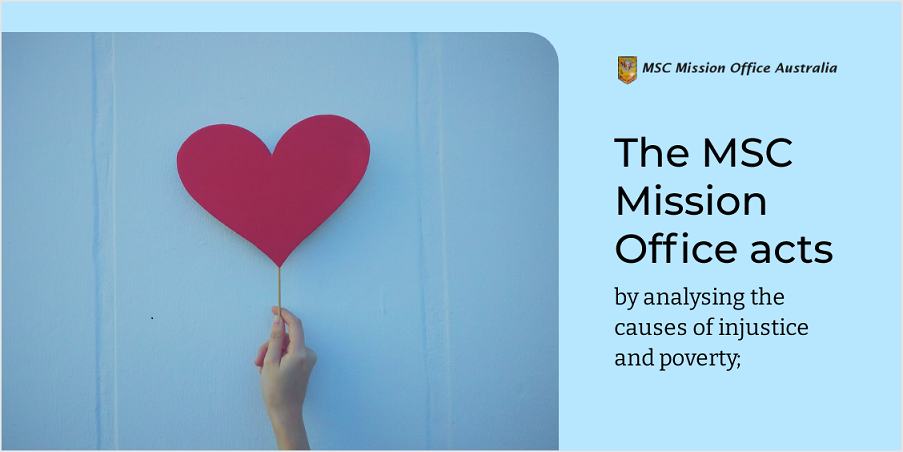
People who leave bequests to support the Missions are wise investors. Each day they will be remembered in the community prayers of the Missionaries of the Sacred Heart, as well as the people in the Missions
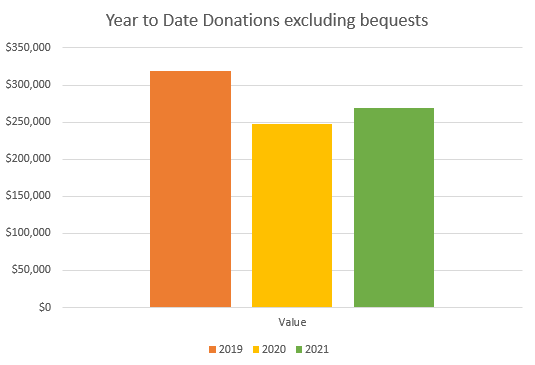
Revenue vs Expenses
MSC Mission Office Australia Limited has seen an average annual growth of 25% in revenue versus a -5% p.a. decrease in expenses. This can be a good sign of financial health.
Grants given out in 2020 for use within Australia: $14,905
Grants given out in 2020 for use outside of Australia: $349,182

Letter to the Prime Minister, Immigration, refugees, detention. Malcolm Fyfe MSC, Vicar General, Darwin
Letter to the Prime Minister, Immigration, refugees, detention. Malcolm Fyfe MSC, Vicar General, Darwin

Catholic Diocese of Darwin
The letter is to the Prime Minister, individualised versions are being sent to key Coalition and Opposition MPs and Senators.
OFFICE OF THE VICAR GENERAL
The Honourable Mr Scott Morrison, Prime Minister of Australia.
19.07.2021
Dear Prime Minister,
I am writing this letter on the eighth anniversary of former Prime Minister Kevin Rudd’s announcement that no person seeking asylum by boat would ever be resettled in Australia.
Every person arriving after that date was to be subjected to indefinite detention on Manus Island, PNG, or in the Republic of Nauru, under ‘processing’ arrangements between the Australian Government and those Pacific states.
Eight years on, 127 people seeking asylum remain trapped in PNG and 108 on Nauru, according to reliable sources.
A closely related issue is the continued long-term detention of refugees and asylum seekers brought to Australia for medical treatment after spending years in Australia's offshore processing facilities on Manus Island and Nauru.

I am writing from the Diocese of Darwin, on behalf of many well-informed and thoughtful people who are deeply concerned, indeed appalled, by these consequences of Australia’s current Border Protection Policy.
The offshore processing regime is claimed to be essential as a deterrent to ensure there are no more asylum seeker or refugee arrivals by boat.
Whatever about that claim’s validity, what is in place is actually a classic and clear case of legislation that is immoral in the most basic of ways:- an evil act is engaged in for the purpose of achieving some good outcome.
How far can one go inflicting suffering on one group of people to prevent unrelated others from acting in a certain way?
Indefinite detention is just a slightly civilized form of torture.
It has, in fact, similarities with the use of “human shields” in warfare.

We have in fact, a debt of gratitude to these indefinite detainees: they have been our human shields, deterring unwanted others from attempting to reach our shores by boat.
2.
But back to 2013.
With relentless regularity, Government Ministers have blatantly repudiated and debunked the raft of concerns raised by United Nations personnel, the Human Rights Commission, Church Leaders, Medical and Legal Experts, Children’s Welfare Organisations, and other highly principled members of the public. Our elected leaders simply take cover behind a Jericho Wall of total secrecy regarding Operation Sovereign Borders, the treatment of persons intercepted at sea and those in immigration detention centres generally.
Tragically, as might have been expected, the incidence of psychological damage and self-harm is prevalent among such long-term detainees.
The crippling cost of maintaining the current detention arrangements is also a very real concern, putting huge pressure on the budget. Is this unnecessary outlay to go on and on unchecked?
Here is the first and preferred proposal I would like to make:-

Operation Sovereign Borders involved from the start a two-pronged strategy, characterized by (1) a deterrence policy (“Don’t attempt to come here by boat or you will face the unbearable treatment we are meting out to our detainees”) and (2) by the diligent efficiency of our Australian Defence Forces monitoring and controlling the seas surrounding us.
Has not our experience over recent years shown that the Australian Defence Forces are quite capable by their own resources, of achieving the goal of “stopping the boats” to the point that we no longer need the deterrent factor associated with our costly and inhumane indefinite detention policy?
We should henceforth guard our shores by military skill and effective intelligence and re-assume responsibility ourselves for on-shore processing as swiftly as possible.
Why not consider the feasibility of a carefully planned, once and for all AMNESTY, with cross-party support, for as many such detainees as possible?
What an innovative and laudatory move that would be! Our international standing would be greatly enhanced by such an act.
If the above is rejected out of hand and an objective appraisal of it simply vetoed, then I would make the following (fall-back) proposal:
3.
It was back in August 2012 that the Expert Panel on Asylum Seekers delivered its Report.
I believe it is time for another “Expert Panel” to be set up on cross-party lines to review the situation and to indicate what changes can now be made to the conclusions and outcomes of the earlier Report.

Australia is capable of something a lot savvier and more generous than our current harsh and mean treatment of asylum seekers and refugees. The majority of people I encounter are most uncomfortable with this ongoing reprehensible phenomenon and there is a sense that, as Australians, we are better than this.
As a person with good moral principles, can you stand aloof and not do something to achieve a more positive and humane future for these already damaged and hapless human beings?
We should bring them out of their current confinement into the realm of freedom and opportunity that we Australians inhabit and so put an end to this reprehensible 8-year episode.
With appreciation for the many good things our elected Members are doing,

(Father) Malcolm P. Fyfe msc
Vicar General,
Catholic Diocese of Darwin.
“It is in pardoning that we are pardoned.” Prayer of St Francis.`
Rest in Peace, Bernie McGrane MSC
Rest in Peace, Bernie McGrane MSC
Peter Hendriks writes, Steve Dives called this morning to let us know that Bernie McGrane msc, died peacefully this morning at 12:30am at St Joseph’s Nursing Home. Bernie turned 95 this year.
He spent most of his ministry in Eastern Papua. He would have been 69 years ordained next Tuesday, July 27th.
Part 2 of the story of the planes over the Tiwi Islands, 1942. Fr John McGrath MSC.
Part 2 of the story of the planes over the Tiwi Islands, 1942. Fr John McGrath MSC.

Part 1 appeared the other day, the story of Matthias Ulunguru and the capture of the Japanese pilots. This continues Matthias’ story but also the role of Fr John McGrath MSC.
The alert from Bathurst Island
The morning of Feb. 19, 1942, dawned hot and humid in Australia’s Northern Territory. Some 50 miles north across Beagle Gulf from Darwin—the region’s sparsely populated seaside capital—Roman Catholic Father John McGrath was working in a field near his mission station at Nguiu on Bathurst Island. Shortly after 9:15 the growing rumble of multiple engines drew the priest’s gaze skyward, where, through breaks in the clouds, he saw a large formation of aircraft flying toward the mainland.

When not performing his ecclesiastical duties, McGrath served as a volunteer coast-watcher—one of several hundred military and civilian observers scattered throughout northern Australia and the South Pacific whose job it was to report sightings of potentially hostile ships or aircraft. Though the Pacific War was scarcely two months old, the Japanese had already landed in the Philippines, the Dutch East Indies and New Guinea, moved into Thailand and Malaya, and taken Hong Kong. Singapore had fallen on February 15, and most Australians believed their island nation was next on Tokyo’s list.
Unable to positively identify the high-flying aircraft, McGrath ran to a small hut built in the middle of a citrus orchard and turned on his pedal-powered radio transmitter. After anxious minutes spent waiting for the set to warm up, he sent an urgent message to Darwin warning of the incoming formation. Told to stand by, the priest wondered if war had finally come to Australia. He didn’t have to wait long for his answer, as minutes later six Mitsubishi A6M2 “Zero” fighters of the Imperial Japanese Navy swooped down from the clouds and methodically machine-gunned a civilian transport plane parked on the mission’s short airstrip.

But the damage done on Bathurst was nothing compared to what was about to befall Darwin.
Though he did not know it, the planes Father McGrath saw had lifted off earlier that morning from four of the six aircraft carriers that just 10 weeks earlier had launched the devastating attack against the U.S. Pacific Fleet and military installations on Oahu, Hawaii. The 188 planes that passed over Bathurst, torpedo bombers, carrying conventional bombs—were on their way to Darwin. Less than two hours behind them was a second attack wave, 54 land-based Mitsubishi G3M2 “Nell” and G4M1 “Betty” medium bombers that had taken off from island airstrips in the Dutch East Indies.
[For a tribute to Fr McGrath, use the search engine on the Current News page and a reference to a long article by Sister Anne Gardiner OLSH will come up.]
The capture

Toyoshima's crashed aircraft
Matthias Ulungura was a member of the Tiwi people, who in 1942 was living on Melville Island. On 19 February, a damaged Japanese fighter returning from an attack on an aerodrome on nearby Bathurst Island crashed near Snake Bay on Melville Island. The Japanese pilot, Hajime Toyoshima, survived the crash, but Ulungura crept up behind him, surprising him with a tomahawk, and took him prisoner. In Ulungura's words:
"I walked after him and grabbed his wrist near gun. He got proper big fright. I take revolver from his right side near his knee. Then I walk backwards pointing gun, I say "Stick 'em up, two hands, no more holding hands on head." Matthias Ulungura

Ulungura took his prisoner to the RAAF guards stationed at the Bathurst Island aerodrome, where he was transferred into their custody. Toyoshima initially used the alias of Tadao Minami and claimed he had been washed ashore in an attempt to prevent his captors from locating his downed plane, but after questioning police saw through his story and located the wreckage. The wreckage was transferred to Darwin, and Toyoshima was taken to a prisoner of war camp, where he died in 1944 during the Cowra breakout.
Although Ulungura could not be enlisted because of his race (Australian military policy at the time forbade Indigenous Australians from enlisting), Corporal Moore, one of the two guards permanently stationed on Bathurst Island, took Ulungura on as his personal bodyguard and assistant.
Despite Ulungura's role as the first Australian to take a Japanese prisoner of war in Australia, he remains relatively unknown. Indigenous leader Mick Dodson has remarked that "the fact that an Aboriginal man took the first Japanese prisoner of war on Australian soil was hardly known in Australia.]
A life-sized bronze statue of Matthias Ulungura was erected on Bathurst Island in 2016.

ACU Chancellor, Justice Martin Daubney (past student of Downlands College)
ACU Chancellor, Justice Martin Daubney (past student of Downlands College)

After leaving Downlands, Martin Daubney studied for two years in the MSC Pre-novitiate program at Croydon, then pursued legal studies and… His appointment was announced by Archbishop Mark Coleridge, President of the Australian Bishops Conference.
Justice Daubney is well known in the Australian legal community. Following a career as a leading barrister, he was appointed to the Supreme Court of Queensland in 2007, and as president of the Queensland Civil and Administrative Tribunal in 2017. Prior to his appointment to the bench, he had served for many years on the Council of the Bar Association of Queensland, including as vice-president in 2005 and president in 2006. Since his appointment as a judge, he has continued his wider service to the legal profession, both nationally and internationally.

He has also occupied leadership positions in numerous Church, community and cultural organisations. Justice Daubney served on the Senate of the University of Queensland from 2010 to 2017, and as president of King’s College Council since 2009. In 2018 he was made a Member of the Order of Australia for significant service to the law, and to the judiciary, to education, and to the community. He is also an Honorary Fellow of ACU. He will serve a term of five years starting 1 January 2022.

“This appointment is a great honour. I thank the Corporation for entrusting me with the responsibility to serve as Chancellor of this unique national institution, which is firmly grounded in 2000 years of Catholic intellectual tradition and the Church’s engagement in university education for a millennium,” said Justice Daubney. “ACU’s core commitments to the pursuit of knowledge, the dignity of the human person and the common good resonate for all Australians. I look forward to working with the Pro-Chancellor, the Senate, the Vice-Chancellor, and all of the ACU community to advance this mission in a charism of service inspired by ACU’s patron saint, St Mary of the Cross.”
Named as Vice-Chancellor, Virginia Bourke, an active figure in the health and legal community in Melbourne. She is currently chair of Mercy Health and of St John Ambulance Victoria, and is a director of St John Ambulance Australia, Catholic Health Australia and Caritas Australia.

[A Chevalier College postscript, former NSW Premier and Coalition Parliamentary member and minister, John Fahey, a student of Chevalier in the 1960s, was ACU Chancellor, 2014-2019, renewed in 2019. He died in 2020.]
Repairs at Via Asmara, MSC General House
Repairs at Via Asmara, MSC General House

Former Provincial, Tim Brennan MSC, now the go-to person for Professional Standards issues, lives at the General House. He sent these photos for a quiet day on the website.
With Victoria and New South Wales locked down because of the Delta Variant, today seemed one of those very quiet days.

Many visitors to the site will have visited the General House – and may be trying to work out the locations for the repairs and work.



Tiwi Islanders, Japanese pilots, 1942
Tiwi Islanders, Japanese pilots, 1942

A Moving Story of Australian-Japanese kindness during WWII. Phillip Hoy, former MSC confrere, relays an event that took place at the time of the bombing of Darwin.
One of the bombers limped to Bathurst Island and then crashed. A Tiwi man was sent to fetch the survivors and he told them to walk in a straight line. Apparently, he only had one bullet and he thought it would be a way to shoot all of them if necessary. When they were taken to the community the Tiwi women saw they were frightened youths.

The hero of the episode, Mathias Ulungara
The women gave their babies to the Japanese to hold. All of a sudden, the Japanese realised that they were not going to be killed and eaten as they had thought. Phillip says he was there as a priest in 1990 when one of those men came back to say thank you. In broken English he heard ‘You let us hold your babies’.
A couple of weeks ago the grandson turned up thanking the descendants for their kindness 80 years earlier. The first photo below is of the grandson with the great grand-daughters of Matthias. Behind the three of them is a statue of Matthias. The second photo is a promo of an upcoming film of this experience.

Some Midwinter warmth and cheer
Some Midwinter warmth and cheer

Today, in the southern hemisphere, it is midwinter - halfway day between June 1st and September 1st. And Sydney and Melbourne (and regional areas) are in strong lockdown. Jokes can be heartwarming for cold seasons - although puns might cause heat for those who boil up when hearing them. (And the site editor has the above poster on his desk!)
So, here we are:
Dad, are we pyromaniacs? Yes, we arson.
What do you call a pig with laryngitis? Disgruntled.
Why do bees stay in their hives during winter? Swarm.
If you’re bad at haggling, you’ll end up paying the price.
Just so everyone’s clear, I’m going to put my glasses on.
A commander walks into a bar and orders everyone around.
I lost my job as a stage designer. I left without making a scene.
Never buy flowers from a monk. Only you can prevent florist friars.
How much did the pirate pay to get his ears pierced? A buccaneer.
I once worked at a cheap pizza shop to get by. I kneaded the dough.
I lost my girlfriend’s audiobook, and now I’ll never hear the end of it.
Why is ‘dark’ spelled with a ‘k’ and not ‘c’? Because you can’t see in the dark.
Why is it unwise to share your secrets with a clock? Well, time will tell.

When I told my contractor I didn’t want carpeted steps, the y gave me a blank stare.
Bono and The Edge walk into a Dublin bar and the bartender says, “Oh no, not U2 again.”
Prison is just one word to you, but for some people, it’s a whole sentence.
Scientists got together to study the effects of alcohol on a person’s walk, and the result was staggering.
I’m trying to organize a hide and seek tournament, but good players are really hard to find.
I got over my addiction to chocolate, marshmallows, and nuts. I won’t lie, it was a rocky road.
What do you say to comfort a friend who’s struggling with grammar? There, their, they’re.
I went to the toy store and asked the assistant where the Schwarzenegger dolls are and he replied, “Aisle B, back.”
I’ve started telling everyone about the benefits of eating dried grapes. It’s all about raisin awareness.

New Book on MSC Mission in PNG, Roger Purcell MSC
New Book on MSC Mission in PNG, Roger Purcell MSC

Roger and the MSC Mission Office has published a collection of stories, A BRANCH OF THE MUSTARD TREE, The Catholic Church in Port Moresby and Boregeina, Rigo, PNG. The Child and the Grandchild. All enquiries to the Mission Office.

Roger has collated material from MSC missionaries, Frs John Anshaw and Des Moore, with several letters from the 1960s by Sister Fidelis, now known as Sister Mary Ruth OLSH, who is in ministry at OLSH Randwick and The House of Mary. Roger adds reflections of his own, updating the history.

Cor Vitae, MSC, OLSH, MSC Sisters, Manila - update
Cor Vitae, MSC, OLSH, MSC Sisters, Manila - update

From Chris Chaplin, General Bulletin.
The Cor Vitae Team based in Manila, Philippines has been seeking ways to continue its work in the APIA region in ongoing formation with our three congregations belonging to the Chevalier family, at a time when participants of programs cannot travel and attend in person.
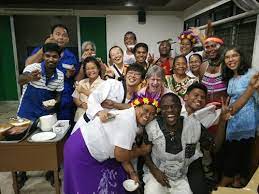
Sr Cathie Mwagioidi fdnsc, Sr. Sophy Francis msc, and Fr. Ben Alforque msc have showed exceptional creativity and courage to begin providing ongoing formation programs online. From the time when the idea was first mooted the Team embraced the possibilities with interest and enterprise. Their first step was to enrol themselves in courses so they would be educated in using online platforms. After consulting leaders across the entities of the three congregations they proposed topics and created programs.

In May they offered three online programs aimed at times of life-transition: young members, Mid-Lifers, and Wisdom years. I was fortunate to be involved with the second two transition groups offering a session on Integrity in Ministry to the Mid-Lifers and another on the psycho-social dynamics in the Spirituality of Aging. I was delighted to see how many of our members were being reached in these sessions. I had been told for one that there would be near 40 and it ended up being closer to a hundred.

Other sessions had similar experiences. There was good feedback on what was presented and this is very encouraging. The team is also working on a series called Christ Jesus Before Our Eyes: The Spirituality of the Heart and the Human Heart of the 21st Century. This course will run from July to December 2021, every First Saturday, with the following topics: The Human Heart in the 21st Century; Dealing with Emotions in Community Life; Managing Differences, Conflict Resolution; Life For, With and Among Others; St. Joseph, Model and Patron of Those who Love the Sacred Heart; Mary: Our Lady of the Sacred Heart. If these seminars are anything like the quality of those in May, they are not to be missed.
Please contact Cor Vitae team for more information, This email address is being protected from spambots. You need JavaScript enabled to view it..

